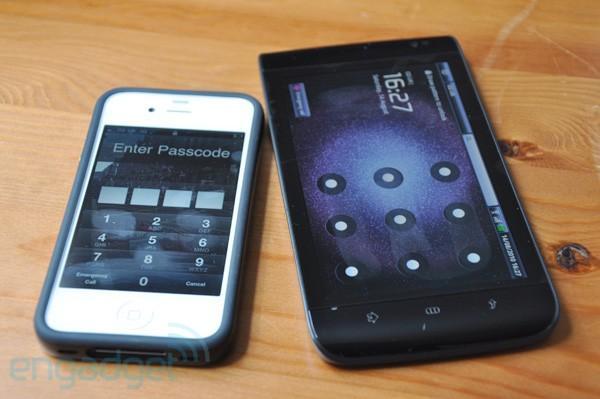
Being a lifeline for nearly everything we do, our cell phones tend to accumulate a lot of personal information. Text messages, emails, pictures, confidential work documents, bank statements, bill payments, call history – these are just a few examples of the types of information that you might not want that nosey friend or lover to lay their eyes on. Whatever the reason, there are a few precautions you can take to help prevent your potentially incriminating or embarrassing information from falling into the wrong hands.
The obvious safeguard? Don't keep private information stored directly on your phone. Store private information, photos or documents remotely, and open and view them as needed via cloud. This is the only way to positively keep data out of the wrong hands. And if someone lays eyes on private info when you're not storing files locally and only viewing from the cloud, only your sloppiness is to blame.
Sometimes, though, storing and viewing via cloud is neither convenient or a viable option. Sometimes you must store files locally and have them on hand in the event you can't connect to the cloud for one reason or another. If that's the case, the precautionary step you might want to consider is enabling a password lock. Every mobile OS has a password lock feature of some sort, and most the time, they do their job quite well. BlackBerry OS, Windows Phone, Android and iOS all allow you to set a PIN password or a slightly more complex alphanumeric passcode for the lock screen.
In this area, Android does have a few more options. The system allows you to connect dots in a three by three grid to configure a pattern lock combination. And in Ice Cream Sandwich, Google introduced yet another unique and fun way to keep your device and data safe: Face Unlock. Simply hold the front-facing camera in front of you and voilà! The phone unlocks.
Most of these methods, however, are flawed. PIN, alphanumeric and pattern passwords are generally very simple. If you use one of the 25 worst passwords of 2011 for the former two, you're likely just asking for trouble. Although it's very unlikely for someone to just guess one of these within the allotted number of tries before the device wipes itself or locks down for a while, your finger usually leaves a residue (or smudge) on the display. These seemingly harmless smudges can reveal the location of the numbers in the number pad or the shape created by the lock pattern. They may not reveal the direction of the pattern or order of the numbers or letters, but they vastly reduce the possibilities.
And Google's Face Unlock feature has one major gaping caveat: if someone were to simply hold a picture of your face up to the phone, the lifeless picture will fool the phone and unlock. This could be fixed by requiring the owner of the phone to smile or blink each time to perform the unlocking action. Nonetheless, the flaw has been noted by Google's own Matias Duarte and hopefully we will see a more advanced validation check in the future. The good thing is, anyone who doesn't know you probably won't have a picture of your face. It's just those nosy people that are close to you that you have to worry about.
Personally, I try to make myself use a password unlock. However, I inevitably disable it just a day or two later, after it has made me want to pull my hair out. I check my phone every few minutes and entering a password or PIN a few hundred times per day is enough to drive you mad. It quickly becomes aggravating and monotonous. Seeing as I check my Galaxy Tab less often and store more personal data on there, I do leave a pattern lock enabled at all times and a I made sure I crossed a lot of lines when making it. If Face Unlock works as planned, I will probably start using that, simply for the cool factor, and because it can never hurt to have a few safeguards in place.
So, tell me, folks. Do any of you password protect your phone? Do you keep any information you don't want others seeing on your phone? Will Face Unlock or something else eventually change that for you?
Image via Engadget